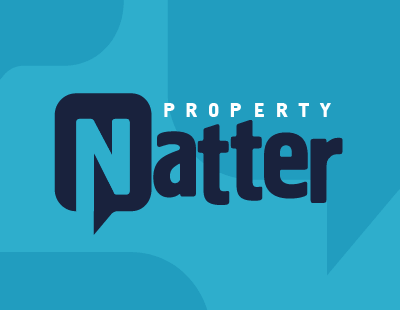The key thing to stress is that Property Logbooks are not actually a product of the home buying & selling industry, although they can come into play at sale. A logbook has functions that are relevant throughout the lifecycle of property ownership, and across multiple industries. They should be able to produce,host and share data that supports maintenance, building work, council services, lettings and, if occasion arises, selling and buying homes.
A Property Logbook is therefore a record of a property and a place where documents can be stored and links provided to arm the owner with all the information they need to know about their home.
Why do I need a Property Logbook?
As data around property is increasingly liberated and shared across professional systems, the amount of information on our homes held by government and industry is ballooning. What is remarkable is how little of it is routinely available to the homeowner. The RLBA believes a homeowner should have either ownership, oversight or, at least, access to all public data about what, for most of us, is the most expensive asset we will ever buy.
More than that, a homeowner should have a tool to store the kind of private data about a property that only they would ever have access to. This information can be made available to a committed buyer during a transaction. A digital Property Logbook is the only consumer-centric tool that puts the homeowner in the driving seat.
What information can be stored in a Property Logbook?
That depends on the Logbook provider. The RLBA supports a vibrant and competitive market between Logbook providers, with innovation and variation encouraged. The Property Logbook for a listed Georgian house will have fundamentally different content and functionality to one used by a young couple in a flat full of smart devices.
However, the RLBA is working on standardising a data core for each RLBA registered Logbook. This is so we can guarantee all players in the property market can build a standard way of integrating and sharing data. The data in a Logbook will include all the public data available on a property, as well as the private data mentioned above (surveys and boiler maintenance records are good examples).
Are Property Logbooks and HIPS the same thing?
No. HIPS were just a specific snapshot of information about a home. A Property Logbook is a digital companion for the life of a property and will pass on to the next owner on sale. Most importantly, HIPs were dead information from the moment they were printed and were hard to validate. Logbooks have a large and growing set of links to live data sources that keep them perpetually up to date. A good logbook should be a tool to help a household manage their home and be able to output different reports to suit different user cases.
What is the difference between Property Logbooks and Sellers Information Packs?
As with HIPs, the Sellers Information Pack (SIP) now being considered will be a snapshot in time to support a single transaction. They will be a one-off download of data about a home. Most Logbooks will have a functionality to output one of the packs, but the data transferred represents only a small subset of the information a Logbook can potentially hold. RLBA-registered Logbooks will be able to keep past SIPs in an archive, so an owner or buyer will be able to trace back the data from past transactions.
How do Property Logbooks benefit estate agents?
Over time, as properties increasingly come to market with a Property Logbook, they will speed up the process of getting a property listed for sale, increase transparency and reduce fall through. So quicker, hassle free sales. As the Logbook companies integrate systems with the estate agent CRMs, back office processes will be automated and admin reduced.
But its likely that Logbooks will also be part of the re-imagining of property sales. Logbooks will be one of the tools used to help homeowners collate upfront information prior to listing. The finance industry is looking to access Logbook data at the start of the process to pre-clear properties for mortgages. So properties can also be marketed as ‘Mortgage Ready’.
Finally, we are working towards hosting vendor identities within Logbooks as part of collating a Sellers Information Pack. The growing shift towards ‘passportable’ identity checks mean that a vendor can get a KYC/AML check done before they even bother an agent, host it in their Logbook and present their property ‘Sale Ready’.
What’s the RLBA’s role in all this?
The RLBA is committed to establishing Logbooks as a primary tool we use to manage our homes. We want to create a competitive market but one based on standards, rules and verification.
For buying and selling we are determined that, along with participating in the digitisation of property sales, Logbooks will support the fight against property fraud. At the heart of this is the RLBA Logbook Register, which is being built at the moment. Our system of Logbook registration will ensure that Logbooks can only be registered by the legal owners and, most importantly, will ensure there is only ever one recognised Logbook for any property.
If a Logbook provider is a member of the RLBA, and their Logbooks are listed with the RLBA Logbook Register, we can guarantee that ownership has been verified, and agreed data standards complied with. Over time we anticipate the Register’s systems will be integrated with all estate agency and conveyancer CRMs and a Logbook check will be a standard, automated step in any sale.
What should agents do next?
The most important thing is to experiment and learn about Logbooks. Every agent should set up a Logbook for their own home, and every agency should ask Logbook companies to demo their products.























Join the conversation
Be the first to comment (please use the comment box below)
Please login to comment